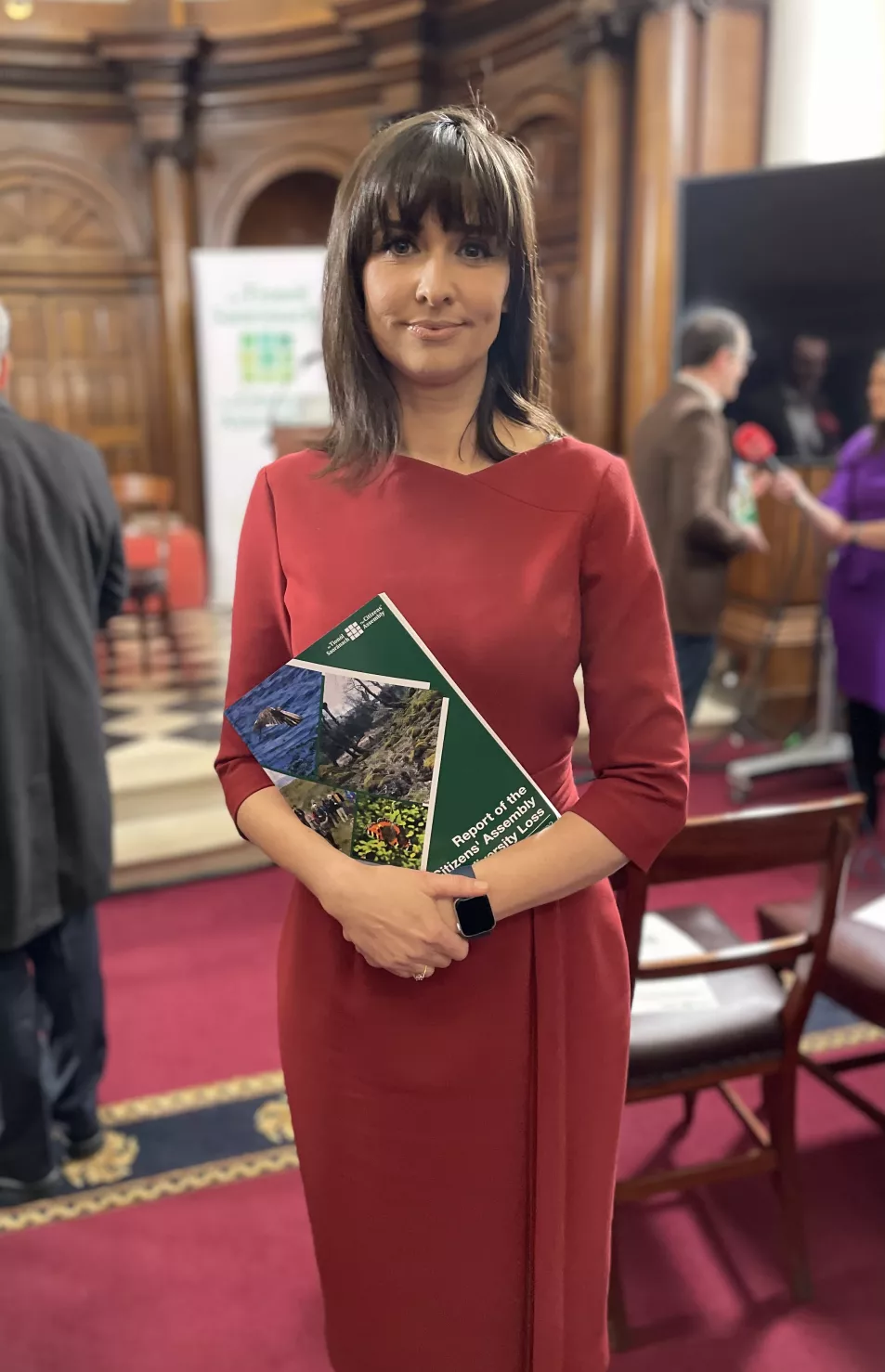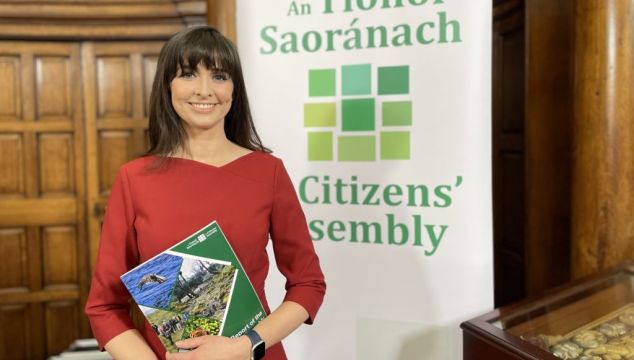Ireland risks losing access to clean drinking water sourced from the island if it fails to act to protect its biodiversity, the Government has been warned.
The head of the Citizens’ Assembly on Biodiversity Loss outlined the implications of not taking steps to preserve the natural environment as a report on its work was published.
The assembly of 99 randomly selected citizens, who met over the course of 10 months to analyse the state of the country’s biodiversity, has made 159 recommendations.
It was billed as the first such national citizens’ assembly anywhere in the world to explore the issue.
The report & recommendations from @CitizAssembly on Biodiversity Loss is launched! Amazing to see so many people there, including a number of farming organisations & environmental NGOs. We can move forward together with constructive conversations. https://t.co/7OoZKhBR5l pic.twitter.com/9tW9l9Uqs0
Advertisement— Aoibhinn Ní Shúilleabháin (@aoibhinn_ni_s) April 5, 2023
Assembly chair Dr Aoibhinn Ni Shuilleabhain outlined the main findings at an event in Dublin on Wednesday.
The report expresses “clear disappointment” at the state’s failure to adequately fund, implement and enforce existing laws and policies on biodiversity.
Members questioned whether the Government was taking seriously its response to what it has declared as a biodiversity crisis
The report on the Citizens’ Assembly’s findings also proposes a series of changes to Ireland’s constitution to ensure people have a right to a clean, healthy and safe environment, as well as adding constitutional commitments to protect natural resources such as food, fresh water and air.
Dr Ni Shuilleabhain said the state was the worst offender when it came to breaching laws aimed at protecting the natural habitat.

“The first two recommendations here say that the state has fundamentally failed to protect nature, and one of the most worrying things about that was that it was the biggest transgressor of its own laws and EU laws,” she told the PA news agency.
“Now, that’s not to say it’s this Government – it’s actually decades of governments.
“And so, while we’re so proud of our countryside and our land in Ireland, it’s actually something we start needing to protect now – 50% of our fresh waters are in poor condition, if we don’t act now, we actually won’t have access to clean drinking water on this island.
“So things like that, when you hear them, it’s very worrying. It’s kind of disconcerting, you wouldn’t necessarily know unless you’re asking questions, because things look lovely and green outside, but just looking under the hood a little bit, the statistics are very clear, we’re going in one direction and it’s the wrong one.
“But if we start acting now, with the 159 recommendations that we have, that’s a clear plan of what we can do in the next five to 10 years and looking onwards, because this is really about future generations and leaving Ireland in a condition where our children and our grandchildren will have this land to enjoy.”
Dr Ni Shuilleabhain said she had a commitment from Taoiseach Leo Varadkar that the report would go to an Oireachtas subcommittee before the summer recess, with a formal Government response to the findings due before the end of the year.
I have received the Recommendations & Report of the @CitizAssembly on Biodiversity Loss. Thank you to Chairperson @aoibhinn_ni_s for her leadership and to the citizens who gave huge time to this important work which will help us take action on biodiversity loss and restoration. pic.twitter.com/NbJEWSLJXj
— Leo Varadkar (@LeoVaradkar) April 5, 2023
Mr Varadkar said the publication would help the Government take action on biodiversity loss and restoration.
“The Recommendations & Report will be sent to an Oireachtas Committee for their consideration and to make recommendations to Government,” he tweeted.
“We must protect Ireland’s biodiversity for future generations.”
Dr Ni Shuilleabhain said she did not want to alarm people about the potential implications of not taking action, and added: “The positive thing about biodiversity is if we act now we can really conserve this.”
She also highlighted the importance of farmers in protecting biodiversity, saying: “Agriculture accounts for almost 70% of our land area and farmers are at the heart of the solution to this.
“Farmers can be mobilised at scale because they see themselves as custodians of the land – the most important thing that farmers want is to hand over their land in good condition.
“So we have to support them with the right policies and we can’t subsidise unsustainable agricultural practices, we need to use our money to subsidise sustainable practices and we heard that directly from farmers.”
The report includes 73 high-level recommendations and 86 sectoral-specific actions and priorities.
Central to the report is the call for the state to take “prompt, decisive and urgent action” to address biodiversity loss and restoration.
Dr Ni Shuilleabhain added: “The assembly’s recommendations are a call to action. They ask us all to re-evaluate our current practices across the whole of society and in industry, agriculture, social enterprise, local government, national agencies and government departments.

“Future generations are depending on us to act now. Some sectoral interests and lobby groups may resist attempts to address biodiversity loss, but it is urgent that our policy makers, in particular our politicians, are supported in making bold decisions to protect, conserve and restore the natural environment in the interest of all of the people, present and future, of the island of Ireland.
“The reassuring greens of our landscape mask the loss we are experiencing of so many key elements of our natural environment. The figures that the assembly heard are stark. And the problems are getting worse.
“Things must change.”







